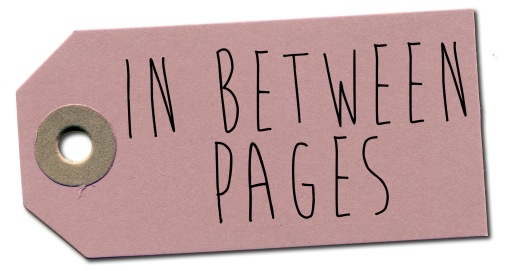Nelly, eine Seismologin, verschwindet in der Karibik. Beim Rundflug mit einer Propellermaschine, den sie mit einem Freund unternimmt, verschwindet das Flugzeug plötzlich vom Radar. Das Wetter war gut, die Maschine war vollgetankt, ein Absturz erscheint unwahrscheinlich. Als nach einigen Monaten Trümmerteile geborgen werden, scheint der Beweis gefunden zu sein. Doch von den beiden Passagieren fehlt jede Spur. Verfolgt wird die Suche nicht nur von Nellys Partner, der in der weiteren Handlung keine große mehr spielt, sondern vor allem auch von ihrer langjährigen Freundin, die namenlos bleibt und aus deren Sicht die Geschichte erzählt wird. Als diese der verschwunden Nelly in die Karibik nachreist, begibt sie sich nicht nur auf die Suche nach Antworten bezüglich des Absturzes, sondern auch nach der Antwort auf die Frage, wer Nelly eigentlich war. Durch Erinnerungen, Gespräche mit Bekannten, gefundene Dokumente und Vermutungen versucht sie ein ‚objektives’ Bild von Nelly zu schaffen. Gefärbt ist diese vermeintliche Objektivität jedoch durch die Erinnerung der jeweiligen Personen auf die sie sich bezieht – Nellys Kollegen auf einem Forschungsschiff, ihre Mitbewohnerinnen in der Karibik, ihre Affären und Partner.
Der Roman ist atmosphärisch sehr stimmig. Ob Studentenwohnheime in Deutschland, Forschungsschiffe auf hoher See oder Wohngemeinschaften in der Karibik, ich befand mich gefühlt sofort an den Orten, die Nina Bußmann beschreibt. Die Freundschaft der beiden Frauen wird als eher unterkühlt, kalkuliert und von Missverständnissen geprägt beschrieben. Keine der beiden kann die andere ‚richtig’ wahrnehmen. Beide lebten in ihrer eigenen Blase, gefangen nicht nur an ihrem jeweiligen Ort, sondern auch in ihren Gedanken.
Die beiden Frauen zeigen außerdem Anzeichen mentaler Instabilität, sie sind beeinflusst von Depressionen, Ängsten, Antriebslosigkeit oder selbstzerstörerischem Verhalten. Vielleicht sind es genau diese Ängste die es den beiden unmöglich macht, auf die jeweils andere empathisch zu reagieren. Denn beide isolieren sich, können nicht aus ihren eigenen Zwängen ausbrechen. Die Reise der Freundin ist somit sowohl als ein Versuch der Flucht aus ihren realen und mentalen Zwängen, als auch als Schritt in die beklemmende Situation Nellys zu verstehen, in der sie sich kurz vor ihrem Tod, der im Buch auch als möglicher Freitod dargestellt wird, befand. Die Verschmelzung der beiden Frauen an Nellys letztem Ort führt gleichzeitig zu einer Art Auflösung der klar umrandeten Identität der Freundin. Als Nellys Freundin in die Karibik reist, zieht sie nicht nur in Nellys altes Zimmer, sie befreundet auch ihre Mitbewohner, besucht dieselben Orte, es ist fast so, als versuchte sie Nellys Leben zu leben. Immer tiefer dringt sie in Nellys Vergangenheit ein und konfrontiert sich mit ihren Emotionen. Sie imaginiert Ordnung und Klarheit im Ende Nellys, doch möglicherweise konstruiert sie damit nur ein gedankliches Gegenstück zu ihrem persönlichen Chaos:
“Im Moment des Aufpralls, vor dem Genickbruch, bevor die Wellen über ihnen zusammenschlagen, heißt es, zieht den Sterbenden ihr Leben vor den Augen vorbei. In aller Ruhe, wie im Film. Das ganze echte Leben: auf einmal eine lückenlose Linie, alle Tage, nicht die Alpträume, nur die Tage, in schönen kadrierten Bildern. Das ganze Flickwerk, sie hat es selbst so genannt, das Nellys Leben gewesen sein sollte, endlich in eine Reihenfolge gebracht.”
Das Buch ging mir anfangs sehr nahe, die mentalen Gefängnisse in denen sich beide Frauen offensichtlich befinden löste bei mir eine sehr große Beklemmung aus. Ich konnte zwar die Rastlosigkeit der beiden Charaktere nachempfinden, je mehr sie sich jedoch in der Karibik (oder in ihren Vorstellungen) verloren umso mehr löste sich für mich die Struktur des Buches auf. Dies mag einerseits ein Stilmittel der Autorin sein, andererseits war es so schwieriger, der Geschichte zu folgen und den Sinn des Ganzen zu verstehen. Die emotionale Nähe, die ich anfangs für Nelly und ihre Freundin empfunden rückte mehr und mehr in den Hintergrund. Vielleicht war dies jedoch genau das Gefühl, dass die beiden Freundinnen füreinander empfanden. Die Erinnerung an eine Nähe, welche sich jetzt im Chaos aufzulösen scheint?

 Klaus Mann, son of the famous German writer Thomas Mann, wrote this novel after he had to flee Germany and its ruling Nazi regime in 1933. It was the first novel to be written during the time of his exile.
Klaus Mann, son of the famous German writer Thomas Mann, wrote this novel after he had to flee Germany and its ruling Nazi regime in 1933. It was the first novel to be written during the time of his exile. The Nazi and the Barber is the novel about Max Schulz, barber, SS man, mass murderer and later a fighter for the Jewish state of Israel. If you think this sounds pretty bizarre you are not mistaken, it really is.
The Nazi and the Barber is the novel about Max Schulz, barber, SS man, mass murderer and later a fighter for the Jewish state of Israel. If you think this sounds pretty bizarre you are not mistaken, it really is.